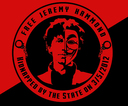Version 1.7 a new dawn
lecture: Doing right by sources, done right

Whistleblowing is becoming a progressively popular topic and ways to technically support anonymous submissions by journalistic sources are being increasingly discussed and developed. However, there is much more to protecting sources than the technical side. There is currently little discussion about the surrounding ethics, operational security and public protections of sources. Two women that have expertise in all areas of source protection; from submission, to publication, to after-care explain and discuss what source protection really means, issues that have arisen in recent years, often causing disastrous consequences, as well as the important lessons to learn from these and successful cases.
Speakers: Sarah Harrison: Courage Acting Director and WikiLeaks Investigations Editor and Grace North: Jeremy Hammond campaign manager
With current technology the ability for journalists to be provided with large data sets securely is increasing. With the surveillance revelations from Snowden there is much talk about ways for the public and journalists to work online safely, and how this can be used to help protect sources. However, there are few to no discussions about a holistic attitude to source protection. In fact we can see in the past that its often not technical, but operational security issues that pose the greatest threat to source's ongoing safety, whether that is the source's or journalist's operational security, informants, or lack of after care.
Source protection begins at the point of contact, and it doesn’t stop at publication - in some cases, the real work actually begins at publication. From the angle of investigations editor at WikiLeaks, a publishing organisation with a clean record of source protection, Harrison is well placed to explain the nuanced areas of source protection for media, from submission through to publication.
But its not just within the publication process that source protection needs to be considered. Simply not printing a sources name is not enough. It’s irresponsible for journalists to speculate about sources they know little about, or to publicly speculate that an unnamed source is on the loose. Recently media outlets have suggested there is another NSA source, leaking information to the Intercept and elsewhere. What has that incurred? The US government launched an internal investigation to hunt out any other suspected sources, and we know well what the United States does to whistleblowers.
And for media and the public alike there is an aftercare responsibility to sources that have risked so much for our right to know - how they are supported and spoken about. Both Harrison and North are experts in how media and the public have and should protect sources. Media generally abandons sources (they did in the case of Manning and Hammond in a devastating way), this can and should change. In addition public solidarity is vital for sources, we have this past year seen a growing trend in pitting sources against one another in the public domain: Harrison and North will discuss the dangers and consequences of this.
While the use of the term “whistleblower” is increasingly used and understood, it doesn’t always describe a source. Courage uses the term ‘truthteller’ to encompass all people who bring secret truths to public light. Someone like Jeremy Hammond, who did not work for Stratfor or its clients, but knew its operations were of interest to the public at large, to the citizens of a government that subscribes to Stratfor’s services, is a truthteller. He is an outsider who worked, allegedly, to make important truths public, and thus a vital journalistic source, without whom we wouldn’t have hundreds upon hundreds of valuable news stories on the private intelligence industry.
These lessons give us a better understanding of what has gone right and wrong with recent high-level sources, like Manning, Snowden and Hammond, but they should also be building blocks for an understanding of the principles involved and how we can employ them in the future. Courage wants to continue protecting the sources we know about, but we also work to engender a culture of support for whistleblowing, a knowledgeable and ethical media class, and a trust among sources that journalists will protect them from start to finish. We encourage whistleblowing as a key method to keeping governments and powerful corporations accountable to the public, but we must be responsible first. This talk will explain and highlight these lessons from a first hand perspective, giving an understanding of what real source protection means, and how the media and public can perform it. The speakers will take questions after.
Info
Day:
2014-12-28
Start time:
23:00
Duration:
01:00
Room:
Saal 2
Track:
Ethics, Society & Politics
Language:
en
Links:
Feedback
Click here to let us know how you liked this event.
Concurrent events
Speakers
 |
Sarah Harrison |
| Grace North |